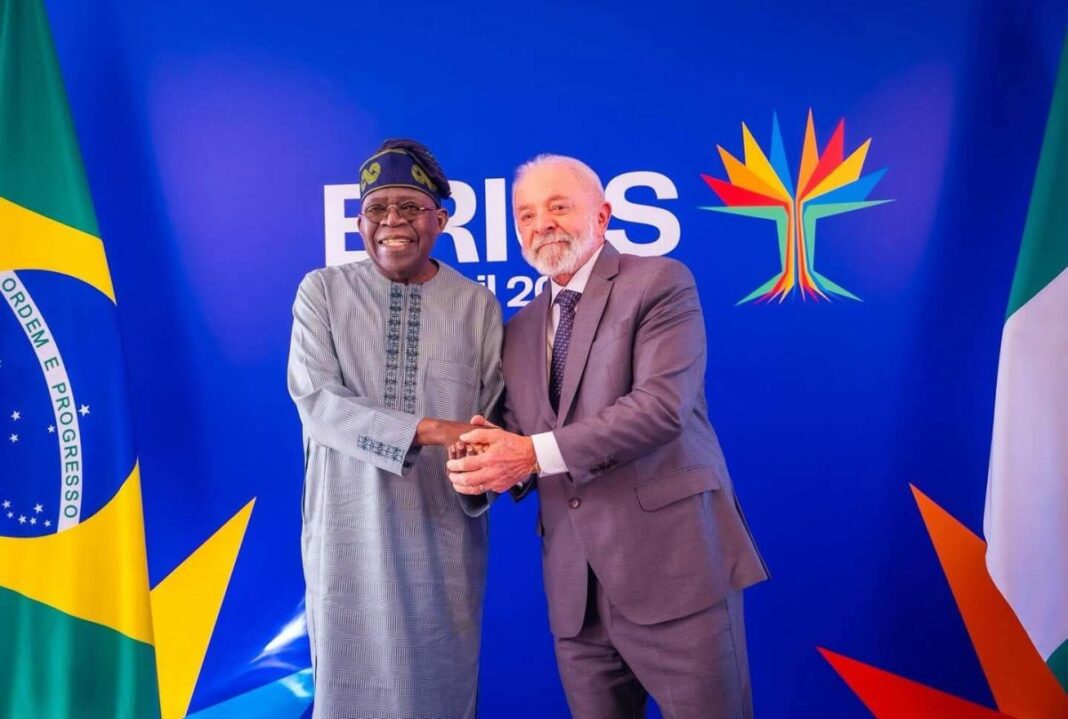Nigeria Turns U.S. Travel Ban Into Geopolitical Triumph: From Disappointment to Destiny
A Headlinenews.news Special Report
I. Introduction: The Paradox of Rejection
In 2020, when the United States expanded its controversial travel ban to include Nigeria, the move was met with shock and humiliation. The world’s most powerful nation had just shut its doors to Africa’s most populous country. For many Nigerians, it seemed like a symbol of disrespect — a blunt reminder that their country, despite its oil wealth and democratic credentials, was still not treated as an equal on the global stage.
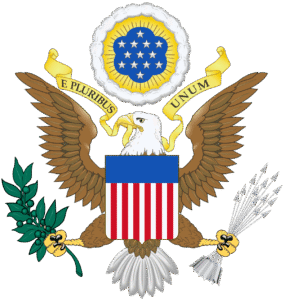
Fast forward to 2023–2024, and the story has taken a remarkable twist. Under President Bola Ahmed Tinubu, Nigeria has redefined the narrative. What was meant as rejection has become a catalyst for bold diplomacy, resource sovereignty, and a realignment of alliances that could reshape global power structures.
Tinubu has taken the age-old African proverb — “Every disappointment is a blessing” — and applied it on the world stage. Instead of bowing to pressure, Nigeria has leveraged its mineral wealth, rallied with BRICS partners, and asserted itself with unprecedented courage.
The result? A Nigeria that is no longer begging for recognition but demanding respect.
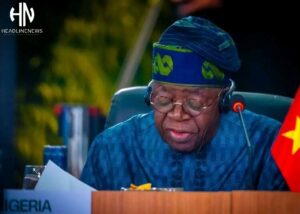
II. Historical Background: The Pattern of Western Pressure
Colonial Shadows
Nigeria’s struggles with Western dominance are not new. From British colonial extraction of palm oil and later crude oil, the country was molded into a raw material supplier. By independence in 1960, Nigeria inherited a resource-rich but structurally dependent economy.

Post-Colonial Pressures
During the Cold War, Western nations used aid, sanctions, and travel restrictions as tools of control. Leaders like General Sani Abacha (1990s) saw Nigeria isolated for corruption and human rights violations. Even after returning to democracy in 1999, successive governments often bent quietly to Western conditions attached to aid, trade, and loans.

The Travel Ban Precedent
The U.S. travel ban was not unique to Nigeria — similar measures targeted Sudan, Libya, and Zimbabwe at different points. But Nigeria’s inclusion in 2020 cut deeper: this was not a failed state, but Africa’s largest economy, its biggest democracy, and home to 200 million people.
Previous Nigerian leaders protested mildly or sought negotiation. None sought to transform rejection into opportunity. Tinubu has broken that cycle.
III. Nigeria’s Mineral Wealth: Sleeping Giant Awakes
The Untapped Treasure
Nigeria is often seen as an oil giant, but beneath its soil lies a far greater prize: minerals critical to the 21st century. According to the Nigerian Geological Survey Agency:
- Lithium: over 3 million metric tons in Nasarawa, Kogi, Ekiti.
- Gold: Deposits across Zamfara, Osun, Kebbi.
- Cobalt & Rare Earths: vital for batteries and semiconductors.
- Uranium: potential for energy independence.
- Natural Gas: 206 trillion cubic feet, Africa’s largest proven reserves.

Why Minerals Matter Now
The global economy is shifting to clean energy and digital technologies. Lithium and cobalt are the “new oil” — powering electric vehicles, renewable storage, and smartphones. The International Energy Agency projects that global demand for lithium will increase 40-fold by 2040.
This positions Nigeria not just as a participant but as a potential kingmaker in global supply chains.
IV. The BRICS Pivot: Redrawing Nigeria’s Map of Allies
When Washington closed its doors, Tinubu opened others. Nigeria’s new strategy has been to court BRICS partners — Brazil, Russia, India, China, and South Africa — along with other emerging economies.

Brazil: A South-South Ally
Brazil’s President Luiz Inácio Lula da Silva praised Nigeria’s courage:
“Nigeria’s resolve reflects the same courage we showed when building independence from foreign dominance. Africa and South America are now partners in shaping a fairer global economy.”

China: Hungry for Lithium
China, the world’s largest EV producer, has courted Nigeria aggressively, offering infrastructure-for-minerals deals similar to those in the Congo. Tinubu, wary of repeating Africa’s history of raw-material dependency, has demanded technology transfer and local refining.
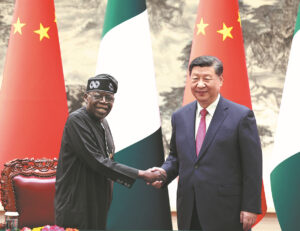
India: A Growing Tech Partner
India’s tech and defense industries crave rare earths. Nigerian lithium agreements could deepen a partnership already strong in pharmaceuticals, education, and IT.
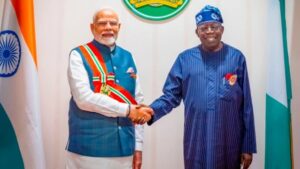
Russia: Strategic Leverage
Russia, isolated by Western sanctions, has welcomed Nigeria’s overtures. Discussions include not just minerals but military cooperation — a reminder that Nigeria is diversifying its options.

Lessons from South Africa
South Africa used BRICS to balance Western dominance, gaining alternative sources of finance through the New Development Bank. Nigeria could replicate this, but with even greater impact given its size and resources.
V. Leadership and Courage: Tinubu vs. Past Nigerian Presidents
For decades, Nigerian leaders navigated Western relations cautiously:
- Olusegun Obasanjo (1999–2007): Worked to reintegrate Nigeria globally but was heavily aid-dependent.
- Goodluck Jonathan (2010–2015): Focused on oil but failed to diversify minerals.
- Muhammadu Buhari (2015–2023): Emphasized anti-corruption but was reactive in foreign policy.
Tinubu, by contrast, has been bold. He confronted the West head-on, asserted Nigeria’s sovereignty, and announced alternative alliances.

His statement at the 2023 UN General Assembly was striking:
> “Nigeria’s destiny will not be dictated from abroad. We will chart our own course, with dignity, courage, and unity.”
African leaders applauded. Ghana’s Nana Akufo-Addo remarked:
“Nigeria’s stance is Africa’s stance. When Abuja asserts its sovereignty, the entire continent benefits.”
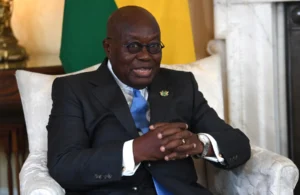
VI. Expert Voices & Global Observers
International voices have reinforced Nigeria’s new path:
- Dr. Gloria Fraser MFR, National Patriots founder and business consultant:
“Nigeria is uniquely placed to leverage its disappointment. Tinubu’s government is writing a new playbook — showing that African nations can reject dependency and still thrive.” - IMF & World Bank: cautiously optimistic, noting that mineral diversification could boost Nigeria’s GDP by 15% by 2035 if reforms succeed.
- African Union: praised Nigeria’s push for “resource sovereignty,” urging others to renegotiate mineral contracts.
- UNCTAD: highlighted Nigeria as a test case for Africa’s mineral-driven industrialization.

VII. Comparative Analysis With Global Cases
History offers parallels:
- Iran: Turned sanctions into closer ties with China/Russia.
- Venezuela: Pivoted to Asia but remained overly oil-dependent.
- South Africa: Used BRICS to soften IMF dependency.
Nigeria’s distinction lies in:
- A youth bulge (70% under 35).
- A diaspora of 15+ million sending $20B annually.
- Minerals beyond oil, giving diversification options.
In short, Nigeria has structural advantages that others lack.

VIII. The People’s Hope: Diaspora & Return Migration
For ordinary Nigerians, Tinubu’s strategy is not just about geopolitics but dignity and opportunity.
The Nigerian diaspora, one of the most educated in the world, contributes billions in remittances. Tinubu’s “Renewed Hope Agenda” is a call for them to come home — not just to send money, but to invest, build, and innovate.
Analysts suggest that if even 1 million skilled Nigerians return over the next decade, GDP growth could accelerate by 2–3 percentage points annually.
Dr. Fraser underscores this:
> “This is not just Tinubu’s fight. It is Nigeria’s chance to lead Africa into a future where we no longer ask for respect — we command it.”
IX. Risks, Challenges, and What Must Be Done
Nigeria’s new path is bold but not without risks:
- Corruption: Transparency International still ranks Nigeria low. Without strong governance, new mineral deals could enrich elites, not the people.
- Security: Mining regions face banditry and insurgencies.
- Overdependence on China: Could replace Western neo-colonialism with Eastern dependency.
- Infrastructure gaps: Roads, ports, and refineries must be built to support mineral exports.
Solutions:
- Transparent contract frameworks.
- Regional security pacts for mining zones.
- Local processing plants to create jobs.
- Youth training programs to harness demographic advantage.

X. Conclusion: Every Disappointment Is a Blessing
The U.S. travel ban was meant to diminish Nigeria. Instead, it ignited a renaissance in foreign policy. Tinubu’s courage to confront the West, forge BRICS alliances, and harness mineral wealth has set Nigeria on a new path.
For Nigerians abroad, it signals a reason to return. For Africa, it marks a turning point: a nation willing to stand tall and demand respect.
Every disappointment, indeed, can be a blessing. Nigeria’s rejection has become its rebirth.
As Brazil’s Lula put it:
> “Nigeria has shown the world that dignity, when matched with courage, can turn humiliation into strength. Africa is rising — and Nigeria is leading.”
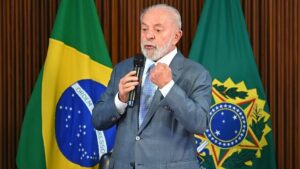
Nigeria’s Lithium vs. Global Leaders
| Country | Lithium Reserves (Million Tons) | Key Notes |
|---|---|---|
| Bolivia | 21.0 | Part of the “Lithium Triangle” |
| Chile | 9.3 | Largest exporter globally |
| Australia | 7.4 | Top producer today |
| Argentina | 6.2 | Expanding rapidly |
| Nigeria | 3.0+ | Untapped, growing interest |
| China | 1.5 | Heavy importer, refining tech |
Timeline: From Ban to Boldness
- 2020: U.S. Travel Ban on Nigeria.
- 2023: Tinubu elected, UN speech asserting sovereignty.
- 2024: BRICS mineral trade deals signed.
Remittances vs. FDI (2023)
- Diaspora remittances: $20B+.
- Foreign Direct Investment: $4.5B.
The National Patriots.
Headlinenews.news Special Publication. ©️
📊 Infographic / Table Drafts
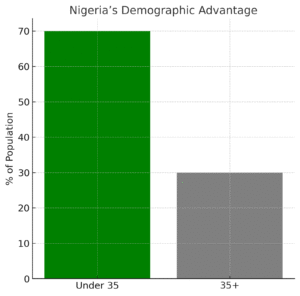
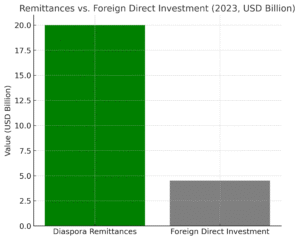
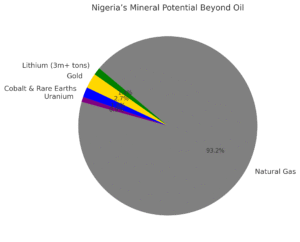
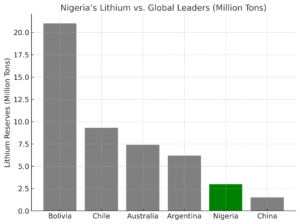
1. From Travel Ban to Global Power: Nigeria’s Rise in the Mineral Age
Excerpt:
The U.S. travel ban once symbolized rejection, but under Tinubu, it became the trigger for Nigeria’s bold realignment with BRICS and a global repositioning in mineral supply chains.
Quote:
“Nigeria’s destiny will not be dictated from abroad. We will chart our own course, with dignity, courage, and unity.” — President Bola Ahmed Tinubu

Comments:
What was meant to diminish Nigeria has turned into a catalyst for sovereignty. Tinubu leveraged rejection as a springboard for economic independence, especially through lithium and rare earths. The IMF projects mineral revenues could reshape Nigeria’s GDP within a decade.
2. Tinubu’s Bold Pivot: How Nigeria Turned Rejection Into Resource Dominance
Excerpt:
Instead of bowing to U.S. and EU pressure, Nigeria found new partners in BRICS, securing deals with Brazil, China, India, and Russia.
Quote:
“Nigeria’s resolve reflects the same courage we showed when building independence from foreign dominance. Africa and South America are now partners in shaping a fairer global economy.” — President Luiz Inácio Lula da Silva (Brazil)
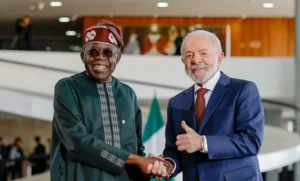
Comments:
Tinubu’s strategy mirrors Latin America’s independence movements: standing tall, rejecting dependency, and forging South-South alliances. Brazil, in particular, sees Nigeria as the linchpin for Africa’s role in reshaping global power.
3. Nigeria’s Lithium Leap: Redefining Africa’s Role in World Power
Excerpt:
Nigeria holds over 3 million metric tons of lithium, positioning itself as a rival to South America and a key supplier for clean energy economies.
Quote:
“China welcomes Nigeria as a partner in the future of clean energy. Our cooperation will ensure that lithium and cobalt, once controlled from abroad, become instruments of African industrial strength.” — President Xi Jinping (China)

Comments:
China’s partnership validates Nigeria’s new importance. By demanding local refining and tech transfer, Tinubu avoided the mistakes of the past where Africa exported raw resources only to import finished products at inflated prices.
4. Every Disappointment a Blessing: Nigeria’s Road to Mineral Sovereignty
Excerpt:
Nigeria has reframed humiliation as opportunity, showing how rejection can inspire sovereignty and courage.
Quote:
“Nigeria is uniquely placed to leverage its disappointment. Tinubu’s government is writing a new playbook — showing that African nations can reject dependency and still thrive.” — Dr. Gloria Fraser MFR, CEO of Fraser Consulting Consortium.( International Consultants)

Comments:
This reframing has powerful symbolic weight. It tells Nigerians and Africans that sovereignty is not negotiable. Fraser positions Tinubu’s stance as a continental shift, one that could inspire other African nations to renegotiate their contracts.
5. Africa’s Sleeping Giant Awakens: Nigeria’s BRICS Gamble Pays Off
Excerpt:
Nigeria’s active alignment with BRICS has strengthened its economic clout and positioned it as Africa’s mineral hub.
Quote:
“Nigeria’s entry into mineral cooperation with BRICS underscores Africa’s central role in tomorrow’s economy. This is a new alignment where sovereignty, not dependency, defines partnerships.” — BRICS Secretariat
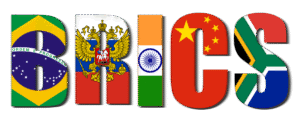
Comments:
By leaning into BRICS, Nigeria found an alternative to IMF dependency. This gamble sets Abuja apart from past African responses to Western isolation, and makes it a new leader in Africa’s negotiations with global powers.
6. Beyond Oil, Beyond Aid: Nigeria’s Fight for Dignity and Respect
Excerpt:
Tinubu has insisted that Nigeria will no longer be trapped in the cycle of exporting raw minerals while importing finished products.
Quote:
“Nigeria will no longer export poverty in the form of raw minerals. We will refine, process, and add value — ensuring jobs and wealth remain on our soil.” — Dele Alake, Nigerian Minister of Solid Minerals
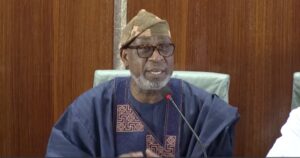
Comments:
This marks the first real attempt at industrializing Nigeria’s mineral economy. If implemented effectively, it could address unemployment and foster youth-led industries, cementing sovereignty in practice, not just rhetoric.
7. Tinubu vs. the West: Nigeria’s New Foreign Policy of Courage
Excerpt:
Unlike past presidents who pursued quiet compromise, Tinubu has chosen confrontation when necessary — carving a new foreign policy defined by courage.
Quote:
“Where we once sought validation from the West, Tinubu has chosen courage. This will either transform Nigeria or test it like never before.” — Former President Olusegun Obasanjo

Comments:
Obasanjo’s remark captures both the promise and risk of Tinubu’s approach. Nigeria could emerge stronger than ever, or face severe challenges if execution falters. Courage, in this case, is a high-stakes gamble.
8. From Banned to Blessed: How Nigeria Is Rewriting the Rules of Global Power
Excerpt:
The U.S. travel ban was meant to isolate Nigeria. Instead, it became the spark for renewed hope and a new chapter in Africa’s quest for dignity.
Quote:
“Nigeria has taken a stance Africa has long needed — to negotiate not as a junior partner but as an equal. This is leadership the continent must rally behind.” — President Paul Kagame (Rwanda)
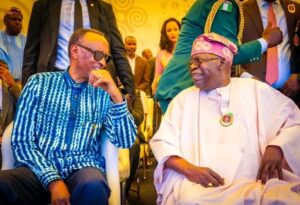
Comments:
Kagame’s endorsement frames Nigeria’s journey as continental. From rejection to blessing, Tinubu has inspired hope not only at home but across Africa, reminding Africans that leadership requires audacity.
The National Patriots ©️
Headlinenews.news Special Publication.


